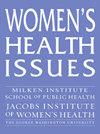Assessing the Provision of Person-Centered Contraceptive Care at Publicly Supported Clinics Providing Contraceptive Services in the United States
IF 2.5
2区 医学
Q2 PUBLIC, ENVIRONMENTAL & OCCUPATIONAL HEALTH
引用次数: 0
Abstract
Introduction
We sought to understand the extent to which the contraceptive care provided at publicly supported family planning clinics in the United States aligns with aspects of person-centered care.
Materials and Methods
We conducted a descriptive study with a national sample of U.S. family planning clinics between November 2022 and December 2023. We measured person-centeredness by the scope of services offered, including the extent to which providers solicit and prioritize patients’ contraceptive intentions, preferences, and goals; the dispensing protocols for various contraceptive methods; and the availability of social services such as intimate partner violence screening and housing insecurity support. We fielded an online survey to a sample of 2,146 clinics, and our analytic sample was 422 clinics.
Results
Our results highlight that most publicly supported family planning clinics provide contraception using counseling protocols that support patient-centeredness, such as assessing patients’ contraceptive preferences during contraceptive counseling. However, we found statistically significant variation by clinic type within many of these measures, with a higher proportion of Planned Parenthood clinics following patient-centered protocols than other clinic types, particularly federally qualified health centers and community health centers.
Conclusions
Publicly supported family planning clinics provide contraception using some person-centered care protocols, although there is room for improvement. Furthermore, person-centered practices vary by clinic type. More research should be done with patients to assess additional elements of person-centered contraceptive care.
评估在美国提供避孕服务的公共支持诊所提供以人为本的避孕护理。
前言:我们试图了解在美国公共支持的计划生育诊所提供的避孕护理在多大程度上符合以人为本的护理。材料和方法:我们在2022年11月至2023年12月期间对美国计划生育诊所的全国样本进行了描述性研究。我们通过提供的服务范围来衡量以人为本,包括提供者征求和优先考虑患者避孕意图、偏好和目标的程度;各种避孕方法的配药方案;以及亲密伴侣暴力筛查和住房不安全支持等社会服务的可获得性。我们对2146家诊所进行了在线调查,分析样本为422家诊所。结果:我们的研究结果强调,大多数公开支持的计划生育诊所使用支持以患者为中心的咨询协议提供避孕,例如在避孕咨询期间评估患者的避孕偏好。然而,我们发现,在许多这些措施中,不同诊所类型的统计差异显著,计划生育诊所遵循以患者为中心的协议的比例高于其他诊所类型,特别是联邦合格的健康中心和社区健康中心。结论:公共支持的计划生育诊所使用一些以人为本的护理方案提供避孕,尽管仍有改进的余地。此外,以人为本的做法因诊所类型而异。应该对患者进行更多的研究,以评估以人为本的避孕护理的其他要素。
本文章由计算机程序翻译,如有差异,请以英文原文为准。
求助全文
约1分钟内获得全文
求助全文
来源期刊

Womens Health Issues
Multiple-
CiteScore
4.50
自引率
6.20%
发文量
97
审稿时长
32 days
期刊介绍:
Women"s Health Issues (WHI) is a peer-reviewed, bimonthly, multidisciplinary journal that publishes research and review manuscripts related to women"s health care and policy. As the official journal of the Jacobs Institute of Women"s Health, it is dedicated to improving the health and health care of all women throughout the lifespan and in diverse communities. The journal seeks to inform health services researchers, health care and public health professionals, social scientists, policymakers, and others concerned with women"s health.
 求助内容:
求助内容: 应助结果提醒方式:
应助结果提醒方式:


